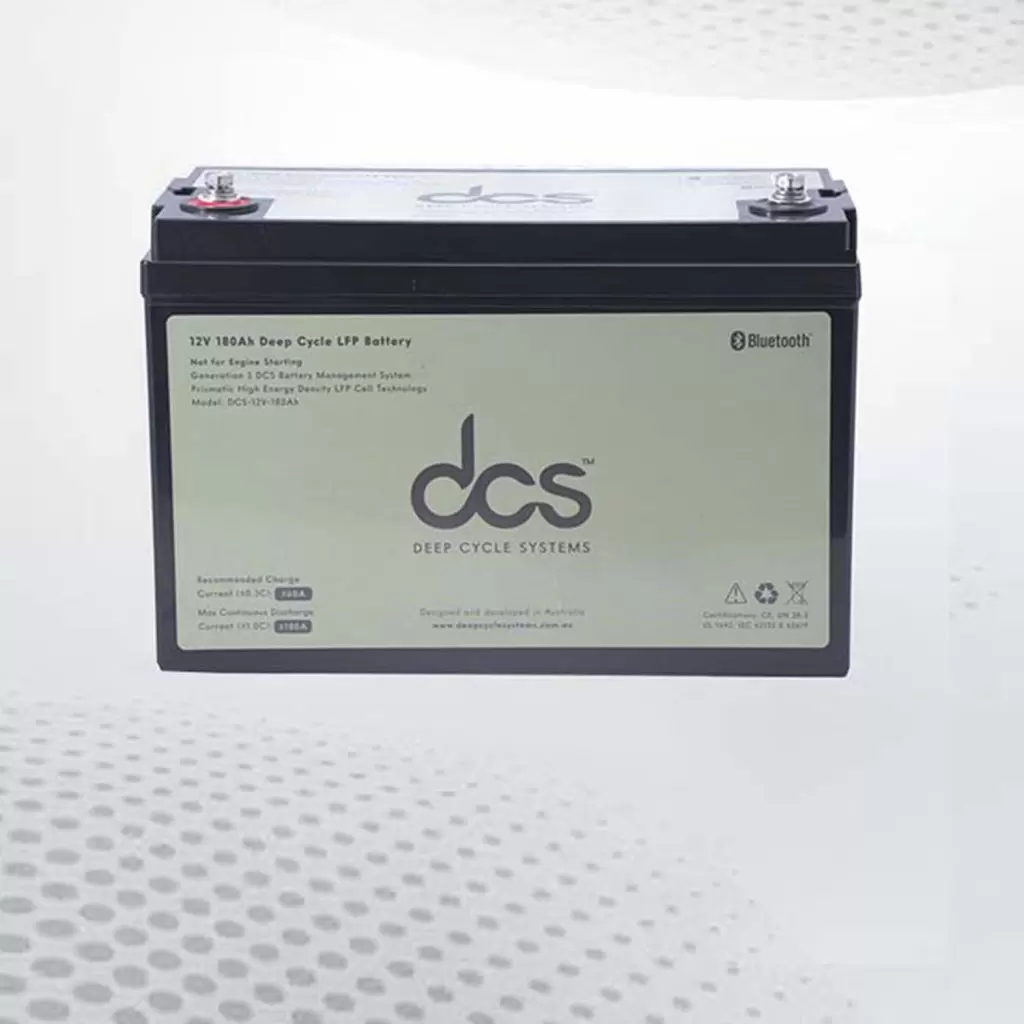Are you ready to embrace off-grid living? A reliable power source is key, and that’s where the 12 Volt Deep Cycle Gel Battery comes in. Whether you’re powering lights, appliances, or even a small refrigerator in your cabin retreat, choosing the correct battery can make all the difference. With so many options available on the market today, finding one that suits your needs perfectly can feel overwhelming. The beauty of deep-cycle gel batteries lies in their versatility and durability. They’re designed specifically for long-term energy storage and are ideal for off-grid systems powered by solar panels.
How to Determine the Right Capacity for Your 12V Battery
Determining the right capacity for your 12V battery is essential for optimal performance. Start by assessing your power needs. List all devices you intend to run and their wattage requirements. This will give you a clearer picture of how much energy you’ll need daily.
Next, calculate total daily usage in amp-hours (Ah). For instance, if an appliance consumes 100 watts and runs for 5 hours, that’s about 42 Ah needed daily. Be sure to consider potential future additions to your setup as well.
Choose a battery with enough capacity to allow some headroom—aiming for around 20% extra can prevent over-discharge and prolong lifespan. Remember that efficiency matters, too; not all batteries deliver the same output under varying loads or conditions.
Comparing 12V Deep Cycle Gel Batteries for Off-Grid Use
Several factors come into play when comparing 12 Volt Deep Cycle Gel Batteries for off-grid use. Look at the amp-hour (Ah) rating to gauge how much energy you can store and use over time. Higher ratings typically mean longer-lasting power for your devices.
Next, consider the weight and size of each battery model. Some batteries may be more compact but still offer substantial capacity, making them easier to transport or install in tight spaces. Consider your specific needs when deciding what’s best for your setup.
Don’t forget about brand reputation and reviews from other users. A trusted manufacturer often provides warranties that can protect your investment. Investigating customer experiences will give you insights into performance and longevity under real-world conditions.
Battery Lifespan: Choosing a Durable12v Gel Deep Cycle Battery
Battery lifespan is crucial when selecting a 12v Gel Deep Cycle Battery. These batteries are designed to withstand deep discharges and frequent cycling, but quality varies widely among brands and models. Look for those with high-quality materials, as they often last longer.
Many manufacturers provide specific ratings for cycle life. A battery rated for more cycles typically translates to better durability over time. Consider your usage patterns; if you frequently draw heavy loads, invest in a robust model that can handle the stress.
Additionally, make sure to check warranty terms. A generous warranty period often reflects confidence in the product’s longevity. This assurance can save you money in the long run and give you peace of mind when living off-grid.
Why Gel Batteries Are Ideal for Off-Grid Solar Systems
Due to their unique construction, gel batteries are an excellent choice for off-grid solar systems. They contain a thick gel electrolyte, which reduces the risk of spills and leaks. This makes them safer to use in various environments, especially where space is limited.
Another significant advantage is their deep cycle capabilities. Gel batteries can handle repeated discharges without compromising performance or lifespan. This resilience means they’re well-suited for the fluctuating energy demands typical in off-grid living.
Also, gel batteries perform better in temperature extremes than other battery types. Whether scorching heat or cold, these batteries maintain efficiency and reliability. Their ability to withstand harsh conditions ensures that you have consistent power when you need it most.
Temperature Considerations When Selecting 12v Deep Cycle Gel Battery
When selecting a 12v Deep Cycle Gel Battery, temperature plays a crucial role in performance and longevity. These batteries are sensitive to extreme heat and cold, affecting their ability to hold charge effectively. High temperatures can lead to faster degradation of the battery’s internal components.
Gel batteries tend to be less efficient and capacity in colder climates. It’s essential to consider how your chosen battery will perform in varying temperatures throughout the year. For areas with significant temperature fluctuations, look for models designed specifically for those conditions.
Insulation is another factor worth considering. Installing your battery in an insulated enclosure can help maintain optimal operating temperatures, ensuring reliable performance regardless of external weather conditions. Always check manufacturer specifications related to temperature ranges before making a purchase decision.
How to Match Your 12V Battery with Solar Power Needs
Matching your 12-Volt Deep Cycle Gel Battery with solar power is crucial for efficient off-grid living. Start by assessing your daily energy consumption. Calculate the total watt-hours required each day to run your appliances and devices.
Next, consider the solar panel output. The number of panels and their wattage will directly influence how much energy you can generate. Ensure your battery capacity aligns with this output to avoid overcharging or underutilizing your system.
Factor in sunlight availability in your area. This will impact how often you can charge the battery using solar panels. A well-sized battery meets immediate needs and provides a buffer for cloudy days or increased usage, ensuring reliability throughout different conditions.
Discharge Depth: Charging 12 Volt Deep Cycle Battery for Longevity
Discharge depth plays a crucial role in the longevity of your Charging 12 Volt Deep Cycle Battery. Understanding how deep you can discharge your battery without causing damage is essential for maximizing its lifespan. A good rule of thumb is to avoid discharging below 50%.
Frequent deep discharges can lead to sulfation, which reduces the battery’s capacity and efficiency over time. By managing your usage wisely and keeping track of power consumption, you can significantly extend the life of your battery.
Regularly monitoring state-of-charge levels will help you maintain optimal performance. This way, you’ll get the most out of each cycle while preserving future energy storage capability. Investing time in understanding these factors pays off when enjoying reliable off-grid living.
Charging Requirements for 12 Volt Gel Deep Cycle Battery
When charging a 12 Volt Gel Deep Cycle Battery, it’s crucial to use the correct charger. Gel batteries require a specific charging algorithm that prevents gas buildup and overcharging. Utilizing a smart charger designed for gel cells ensures optimal performance and longevity.
Typically, these chargers maintain voltage levels between 13.8V and 14.2V during the bulk charge phase. Monitoring this range is essential to avoid damaging the battery. A slower charging rate can also be beneficial; it promotes deeper cycles and better overall health.
Additionally, regular monitoring of your charging process helps identify potential issues early on. Look out for unusual heat or swelling in the battery case as signs of trouble. Adhering to proper guidelines will maximize the efficiency and lifespan of your gel deep-cycle battery.
Maintenance-Free Benefits of Gel Cell Deep Cycle Battery
Gel Cell Deep Cycle Battery is known for their maintenance-free operation and long-lasting performance, making them ideal for various applications, including RVs, solar systems, and marine use. Here are some key benefits of choosing a gel cell battery.
No Watering or Fluid Maintenance
Unlike traditional lead-acid batteries, gel cell batteries do not require regular topping up with water, eliminating the hassle of monitoring electrolyte levels.
Spill-Proof and Leak-Proof Design
The gel electrolyte is sealed within the battery, preventing leaks or spills. This makes them safe for use in enclosed spaces and transportation.
Deep Discharge Protection
Gel batteries handle deep discharges better than standard lead-acid batteries, making them ideal for applications that require consistent and reliable power.
Vibration and Shock Resistance
Gel batteries’ sturdy design makes them more resistant to vibrations and shocks, ensuring durability in rough conditions such as off-road vehicles and marine environments.
Longer Lifespan and Low Self-Discharge
Gel cell deep cycle batteries have a longer lifespan and lower self-discharge rates, making them a cost-effective and reliable choice for long-term use.
Conclusion
Choosing the correct 12 Volt Deep Cycle Gel Battery is essential for successful off-grid living. With so many options available, assessing your specific energy needs and lifestyle requirements is crucial. It becomes easier to make an informed choice when you understand how capacity, lifespan, and temperature factors play into battery performance. The correct battery can provide reliable power and support your renewable energy goals. Investing in a quality gel deep cycle battery ensures durability and enhances efficiency in your solar system setup.
FAQs
What is the lifespan of a 12 Volt Deep Cycle Gel Battery?
Typically, a well-maintained gel battery can last 5 to 15 years, depending on its usage and care. Regular monitoring and proper charging practices will significantly extend its lifespan.
How do I know what capacity I need for my off-grid system?
Calculate your daily energy consumption by adding all appliances and devices you plan to use. Use this total to select a battery with adequate amp-hour (Ah) capacity for optimal performance.
Can I charge my gel battery with any charger?
No, using a charger specifically designed for gel batteries is essential. These chargers manage voltage levels appropriately and prevent overcharging or damage.
| Related Business Listings |
| Contact Directory |
| Local Business Profiles |




